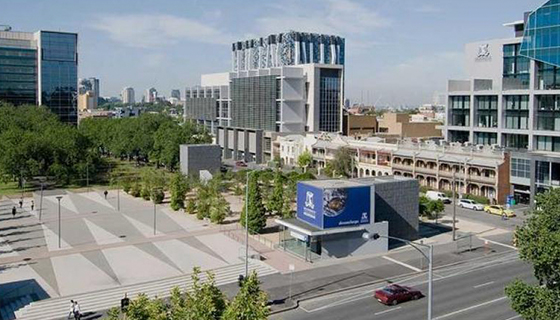Community advocate for human rights Chair
A gift to create Melbourne Law School’s first endowed chair in human rights is helping to advance an understanding of a body of law that promotes dignity and equality for all.
 The University of Melbourne welcomed Professor Dianne Otto to the Francine V McNiff Chair in Human Rights Law in 2013, as the inaugural appointment. The establishment of this endowed Chair in perpetuity has enabled the University to further promote this important area of Law.
The University of Melbourne welcomed Professor Dianne Otto to the Francine V McNiff Chair in Human Rights Law in 2013, as the inaugural appointment. The establishment of this endowed Chair in perpetuity has enabled the University to further promote this important area of Law.
Dean Carolyn Evans said Melbourne Law School was honoured and privileged to appoint Professor Otto to this new role.
“Dianne has a remarkable ability to help students understand human rights issues using both theory and practice, and she encourages them to see both local and international dimensions to human rights law,” Professor Evans said.
Professor Otto brings extensive experience to the role, having taught human rights law subjects to LLB and JD students for over a decade. Since 2006 she has been Director of Studies for the Graduate Diploma in Human Rights Law and is the current Director of the Institute for International Law and the Humanities (IILAH).
Professor Otto’s approach to human rights law was developed by a career involved in community-based advocacy. She spent fourteen years as a Melbourne outreach and community development worker, assisting domestic violence survivors, the homeless young and people with psychiatric disabilities.
Professor Otto said that activism has informed her academic career, and she aspires to bring together research knowledge with community engagement.
“My main aspiration is to ensure and encourage links between academic research and human rights activism at the grass roots level, as well as internationally, and to try and do what I can to break down the barriers to those two groups having a productive relationship with each other,” she said.
“There’s a real responsibility that comes with a Chair like this, and the responsibility is to continue that historical tradition of fruitful interactions between universities and communities in addressing social injustices of all kinds.”
Professor Otto emphasised that universities are well placed to advise governments on domestic and international human rights issues.
“We also have an outreach function, where we can engage with the community,” she said.
“Universities can provide assistance and shared knowledge to the public, but can also learn from the community about how the work we do might make sense to them and be of use.”
Australia’s domestic human rights legislation is an area that Professor Otto believes deserves greater attention, with the Melbourne Law School assisting the community to question the inadequacies of laws purporting to protect individual rights.
“I think we can raise awareness in the general community about individual and collective human rights and the importance of human dignity and equality,” she said.
“One of the aspirations for the future would be to see stronger legislative foundation for human rights work, but also to see that people are more effectively using what legislative base we do have – as well as the common law and Australia’s international obligations.”
With the Chair’s establishment, Melbourne Law School created the Melbourne Law Masters degree in human rights law and has organised an annual regional human rights law symposium.
Melbourne’s human rights law subjects have a breadth unrivalled in Australia. Professor Otto believes it is this dedication to human rights law that attracts international scholars to teach many of these subjects in the Law School.
“It also attracts many international students, especially from the Asia-Pacific region,” she said.
“Australians who are already either working overseas, or are seeking to work overseas in international humanitarian organisations or NGOs are also attracted to the program.”
Meanwhile, Professor Otto believes a regional human rights symposium will provide a rare opportunity to bring together new scholars from the Asia Pacific region.
“An annual symposium with emerging scholars from around the region will enable them to develop their thinking on human rights issues and develop networks into the future,” she said.
“Hopefully this will encourage stronger teaching and research in the region on these issues.”